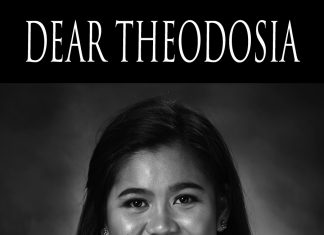DESPITE UST’s high student selectivity ranking of 48 out of 77 participating schools in last year’s Asiaweek survey of best Asian universities, UST still lagged behind University of the Philippines (UP), Ateneo de Manila University (AdMU), and De La Salle Universaity (DLSU) in the overall results. The three universities outclassed UST in academic reputation, research, faculty, and financial resources.
While UST hopes to rear well-rounded, intellectual, and God-fearing Thomasians through quality education, it should first strive to achieve excellence in all aspects.
UST’s efforts to improve student selectivity policies should not only involve admitting sufficient number of students in the University. More important, it should entail selecting students who will maintain UST’s high standards.
No representation
The admissions committee of the University is tasked to administer entrance examinations and to analyze the results. From the testing center, the examination data are handed to the deans, who establish the cut-off scores. Some faculties or colleges like the Faculty of Pharmacy and the College of Nursing, still conduct interviews before admitting students.
However, UST Secretary General Fr. Rodel Aligan, O.P., said the deans do not have proper representation in the admissions committee.
The deans don’t have representatives in the committee but whatever decision the committee made is brought down to the deans,” Fr. Aligan clarified.
He also said the University has ad hoc committees that help facilitate admission within the faculties and colleges.
Fr. Dionisio Cabezon, O.P, guidance and testing center director, said the deans still have the authority to choose their students even if they are not in the committee.
Although the admissions committee administers entrance examinations, Faculty of Arts and Letters (AB) Dean Dr. Armando de Jesus said that the faculties and colleges still control student admission.
“Students are not admitted into the University, they are admitted into the colleges. The admissions is in the colleges,” he explained.
According to Fr. Cabezon, some deans even lower the cut-off score to accommodate applicants who did not meet the requirement.
Recommendation
Fr. Cabezon said some faculties and colleges accept students recommended by somebody from the University or from outside the campus. Since the deans have authority to entertain and even admit these applicants, limited control is left to the committee.
“When they (applicants) want to enter UST but did not meet the cut-off, they approach (people who can help them),” he said.
On the other hand, Fr. Aligan said there are instances when the University has to consider institutional cases which UST is indebted to evaluate, like recommendations from the Commission on Higher Education (CHEd), or other regulating bodies. Fr. Aligan did not elaborate on the reasons CHEd makes recommendations.
Still, the University remains cautious in accepting students, he clarified.
“We don’t just allow it (recommendation). I have the last say, but I respect the decision of the deans. Mayroon akong mga hindi pinapayagan kapag taun-taon, pare-pareho ang nagre-recommend,” he said.
De Jesus added that admitting athletes who did not qualify in the examinations but are needed by UST to play for the University Athletic Association of the Philippines (UAAP), are also considered institutional cases.
He also clarified that recommended students are accepted only when there are still enrolment slots. He added that the faculty’s majors, like Communication Arts and Legal Management, which have already reached their quota, do not admit recommended students, even with satisfactory credentials.
“We (deans) assess and recommend, and the Secretary General determines whether it’s an institutional case,” he said.
De Jesus also emphasized that even with a recommendation, an applicant cannot be admitted if Fr. Aligan disapproves.
However, Fr. Cabezon said the deans should be more careful and accept only deserving students. Although the recommended applicants did not meet the cut- off, their scores must not be too far below, he added.
If the deans accept students who have low scores, these students might not be prepared to maintain the standards of the University.
Cabezon also stressed that the quality of students in the University may be adversely affected when it accepts applicants who do not fulfill the criteria.
Accreditation
Despite the risk of admitting students through recommendation, Fr. Cabezon affirmed that UST is still selective. He said the University is concerned about maintaining quality students because all colleges are under accreditation. UST has to comply with the criteria to earn higher levels of accreditation from the Philippine Association of Catholic Colleges and Universities-Commission on Accreditation (PACCUCOA).
PACCUCOA accreditation is given to colleges that have strong research programs and high level of teaching and student competency. Colleges and faculties may be accredited to Level 3 status down to Level 1.
De Jesus said the faculty expects to be accredited to Level 3 status. To prepare for the accreditation, AB recently designated a new counselor to cater to the faculty’s almost 3,000 students. Level 3 accreditation requires a 500 students-to-1-counselor ratio, which would compel AB to hire six counselors. Unfortunately, the faculty can only hire two counselors as of now.
“As part of the preparation, each college now has two to three counselors to lower the rate of students that each counselor has to attend to,” Fr. Cabezon said.
Aside from this, Level 3 accreditation also requires that 75 percent of an institution’s faculty must be Masteral and Doctorate degree holders. Improvements on research and community/extension services are also requisites.
The College of Science was the first in the University to be accredited to Level 3 status.
Fr. Aligan also described UST’s student selectivity as better than other schools because the University is financially capable of providing quality education to its students. He also said UST has many quota courses, which helps control the number of students admitted in the University. Certain faculties and colleges which offer specialized courses, like the Colleges of Physical Therapy, Nursing, and Science and the Faculties of Medicine and Engineering, require only a limited number of students to have more productive teaching techniques and to ensure more active student participation in class activities.
However, Fr. Cabezon said the practice of recommendation cannot be avoided.
“We cannot just eliminate that (recommendation), there are many factors like when the person who recommended gave the University a favor,” he stressed.
Fr. Cabezon clarified that “favors” done for UST may include significant donations to the University, or influential support of UST positions.
Fr. Aligan also thinks the process is difficult, almost impossible, to erase from the system.
“Mahirap because of the culture of pakiusap. But we discourage it, we limit its number and sometimes, we don’t entertain it,” he emphasized.
Selecting only the best
To keep the University as selective as possible, officials concerned should strive to make the best selection.
The University’s process of selecting the students should be improved, de Jesus said.
“The University uses a general testing instrument, (which) camouflages specialization on certain subjects. It doesn’t apply to all colleges,” he said.
He suggested that the selection instrument of the University must be perfected. It should also allow unique requirements of the colleges to be included in the selection instrument through a combination of centralized and decentralized testing.
“We (faculties and colleges) only set the criteria. But the same testing instrument is applied for the whole University. Maybe we can have a first and second selection,” he said.
However, de Jesus still thinks UST has a good profile of students. “They (applicants) are well-screened, well-selected group of students,” he said.
Fr. Aligan suggested the deans should clearly determine the cut off scores and comply with it.
He also said the entrance exams administered by the University should be valid enough to determine the capability of the applicants. Moreover, he emphasized that the test should be reviewed to maintain or improve its quality.
The deans should not be too lenient in accepting students. Fr. Cabezon added that they should be very strict in determining the number of recommended applicants.
“Since they (deans) have the authority, they might as well select only the best,” he said.

















